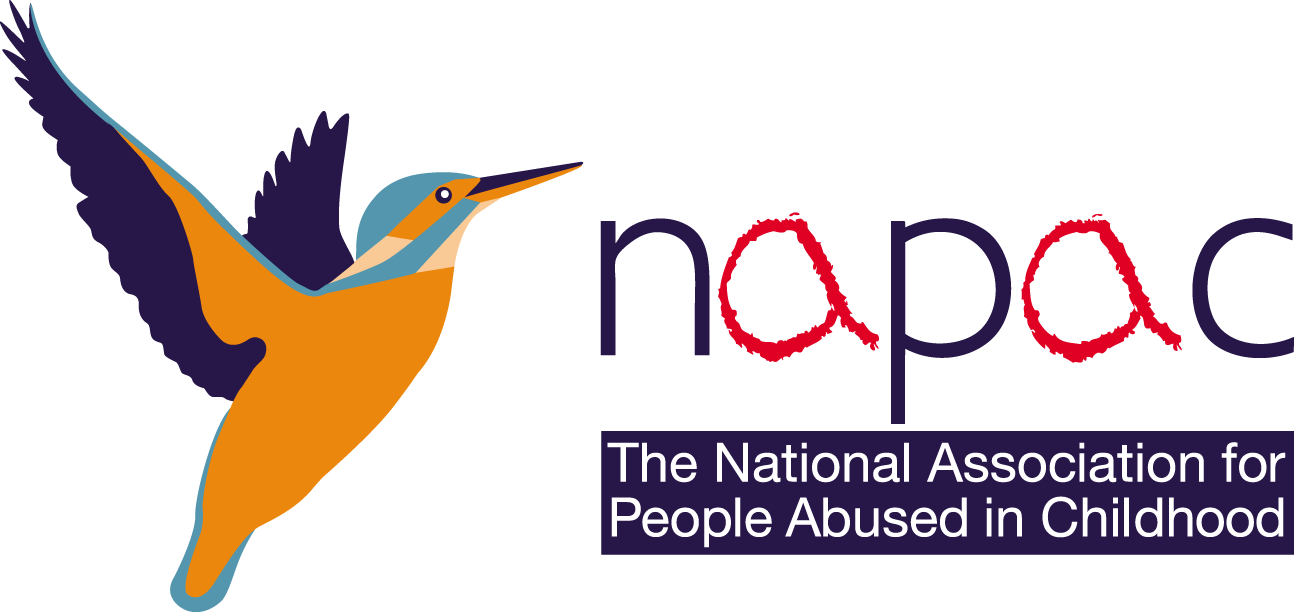The Independent Inquiry into Child Sexual Abuse (IICSA) issued its final report on Thursday 20 October 2022. It is a report that has taken over seven years and heard from over seven thousand adult survivors, and we are taking the necessary time to carefully read the whole report and consider its implications. Here are NAPAC’s initial thoughts on IICSA, the key recommendations, and what the future of survivor support may look like.
On mandatory reporting
NAPAC notes the recommendation to introduce mandatory reporting. Abuse thrives in secrecy and mandatory reporting would remove a layer of this secrecy and allow opportunity for earlier interventions. Our own research indicates that the average time it takes an individual to disclose once the abuse stops is 22 years, mandatory reporting will mean that more survivors can seek the support they need and begin the recovery process at an earlier age. Not only does this improve the prospect of recovery for the survivor, but on a national scale, starting the recovery process earlier would lead to less long-term demand for already oversubscribed health services.
Mandatory reporting also removes the weight of responsibility from an individual trying to determine if they should report their concerns. It provides a clear action to take, superseding organisational safeguarding.
Through IICSA and the Truth Project, and our own support services, we have learnt that there were many instances in which concerns were not sufficiently escalated, or people tried to do their best but did not realise the extent of the harm occurring. Mandatory reporting puts the responsibility for investigating concerns with those who have the authority to act.

On compensation and redress schemes
NAPAC notes the recommendation for a national redress scheme. Claiming compensation must be easier for survivors, but it also must not impact their ability to pursue a legal claim should they wish to. Going through the legal process can be re-traumatising for survivors and NAPAC welcomes any steps that make this process more trauma-informed and reduce the negative impact upon the survivor.
There must be sufficient resourcing included in these schemes that will allow survivors to access independent legal advice and obtain the professional support they need and deserve.
Specialist legal support from professionals who understand this area of law is essential to delivering meaningful justice. NAPAC works with law firms who are especially dedicated to ensuring survivors are supported through the civil processes. It being complex and potentially re-traumatising makes specialist legal support especially important for survivors, and redress schemes need to reflect this in order to provide meaningful change.

On the abolition of laws on time limits for civil claims
NAPAC supports the removal of time limits for civil claims in cases of non-recent abuse. According to current law, a civil claim for childhood sexual abuse should be brought within three years of the victim turning 18, a totally unrealistic expectation given that individuals often take decades to disclose. The law as it stands also completely disregards the wellbeing of survivors, disclosure is a painful, time consuming process that is different in every instance.
The time limits undermine justice and impede further improvements to safeguarding, potentially leaving more children at risk and inhibiting existing survivors from pursuing a civil claim. There is no time limit on recovery, and no matter how long has passed, it still matters.

On safeguarding
NAPAC is pleased to note the recommendation for the establishment of a Child Protection Authority. IICSA has been an excellent series of accountability exercises, and it has triggered the development of much needed national and local safeguarding teams; but the future must also be safeguarded.
Childhood abuse and its impact are a societal reality and a public health issue that in monetary terms costs the UK millions of pounds each year. Permanent arrangements need to be made to allow for ongoing disclosures and to improve the transparency and accountability of institutions. This means permanent recognition and provision.
NAPAC hopes to see ongoing improvements to child protection, including unregulated schools and other unregulated activities brought within the scope of child protection. The DBS must also put more of an obligation on institutions to report people of concern and make it easier to identify individuals on the barred list.
On IICSA
IICSA’s many reports have taken a welcome look at non-recent institutional abuse, holding institutions to account, and making recommendations for positive change. Aspects of IICSA, especially The Truth Project, have also been useful platforms to amplify survivors’ voices and share common experiences and we are heartened that survivors’ voices have been a central part of each report. In fact, evidence submitted to The Truth Project has led to the conviction of many perpetrators of non-recent child sexual abuse.
In the wake of IICSA, NAPAC hopes that there will be continued provision of support for a diverse range of survivors. IICSA focused on CSA within an institutional setting, and we know that childhood abuse can occur in any setting, to any child, which is why it is imperative that there is a wide range of support available for survivors going forward.
IICSA helped lift the lid on the uncomfortable truth of how many children are harmed, and how few are heard.

On the future
As IICSA concludes, NAPAC wishes to remind all survivors of any type of childhood abuse that we are still here, and we will do all we can to support you. NAPAC turns 25 next year and we are reflecting on all we have learnt by listening to survivors, on all the changes we have seen, and advocating to ensure survivors continue to be heard.
Although not without their flaws, IICSA and the Truth Project have been powerful turning points for many survivors across the country. There has now been statutory recognition of the extent of abuse within institutions that were long trusted to care for children, going back decades, and the subject of childhood abuse has been kept firmly in the public’s consciousness.
We also know that changes must continue to be made, and that listening to survivor voices is an integral part of elevating support and improving safeguarding. NAPAC will continue listening, learning, improving trauma-informed practices, and supporting survivors.
The frontiers of this fight are already changing, and we must change with them, focusing on a model that prevents abuse, spreads awareness and provides ample support options for survivors. Abuse in sport and online child abuse are both on the rise and in the wake of IICSA, diverse partnership working is going to be integral to confronting this problem.
It is vital that we continue to be curious and listen to survivors, taking the learnings from IICSA and implementing accessible and appropriately specialist support options that work for the end user.
IICSA’s report and all these years of learning were made possible by listening to adult survivors.
The report includes survivor stories and descriptions of abuse which can be triggering. IICSA’s final report is available online (opens in new window)
Recovery is possible and NAPAC is here to support all adult survivors of all types of abuse.
